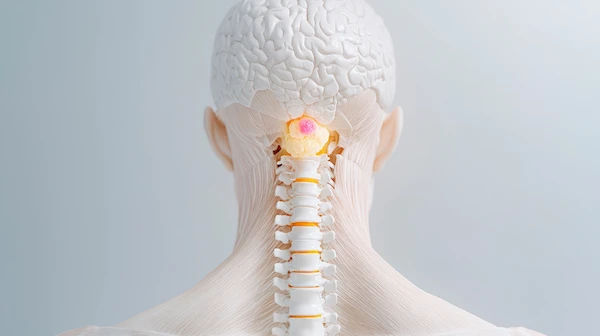Water Intake's Influence on Blood Sugar Control
Discover how proper water intake can influence blood sugar control and support overall health. Learn the connection between hydration, glucose regulation, and tips for maintaining optimal fluid balance.


Introduction
Staying hydrated is essential for overall health, but did you know that water intake can also play a crucial role in managing blood sugar levels? Whether you have diabetes, prediabetes, or simply want to maintain healthy blood sugar, understanding how hydration affects your body can make a big difference.
In this article, we’ll explore how water impacts blood sugar control, signs of dehydration and its effects on glucose levels, how much water you should drink daily and simple tips to stay hydrated.
Let’s dive in!
Why Is Water Important for Blood Sugar Control?
Water helps your kidneys flush out excess sugar through urine. When you're dehydrated, your blood becomes more concentrated, leading to higher blood sugar levels. Additionally, proper hydration supports insulin function, the hormone responsible for regulating blood sugar.
Key Benefits of Drinking Enough Water:
Helps kidneys remove excess glucose – Prevents sugar buildup in the blood.
Reduces diabetes risk – Studies suggest that drinking more water may lower the risk of developing type 2 diabetes.
Prevents dehydration-related sugar spikes – Even mild dehydration can raise blood sugar levels.
Consult a Nutritionist for the best advice
How Dehydration Affects Blood Sugar
When you don’t drink enough water:
Your body produces more vasopressin, a hormone that signals the kidneys to retain water and the liver to release stored sugar.
Blood becomes thicker, making it harder for insulin to work effectively.
You may experience fatigue, dizziness, or confusion, which can be mistaken for high or low blood sugar symptoms.
Signs of Dehydration to Watch For:
Dry mouth or excessive thirst
Dark yellow urine
Headaches or dizziness
Fatigue or difficulty concentrating
If you have diabetes, dehydration can make blood sugar management even harder, so staying hydrated is crucial.
How Much Water Should You Drink Daily?
The general recommendation is 8-10 glasses (2-2.5 litres) per day, but individual needs vary based on:
Activity level – More exercise means more water loss through sweat.
Climate – Hot or dry weather increases hydration needs.
Health conditions – People with diabetes or kidney issues may need adjusted intake.
Tips to Stay Hydrated:
Simple daily habits can help you stay hydrated and keep your body functioning at its best.
Start your day with a glass of water – Helps kickstart metabolism and hydration.
Carry a water bottle – Sip throughout the day instead of drinking large amounts at once.
Eat water-rich foods – Cucumbers, watermelon, oranges, and soups help with hydration.
Set reminders – Use phone alerts or apps to track water intake.
Limit sugary drinks – Sodas and juices can spike blood sugar; opt for water or herbal teas instead.
Can Drinking More Water Lower Blood Sugar?
While water alone won’t cure diabetes, it supports better blood sugar control by:
Diluting blood sugar levels – Helps kidneys flush out excess glucose.
Improving insulin sensitivity – Proper hydration ensures insulin works efficiently.
Reducing cravings – Sometimes thirst is mistaken for hunger, leading to unnecessary snacking.
When to Seek Medical Advice:
If you notice:
Extreme thirst despite drinking enough water (could indicate high blood sugar).
Frequent urination with high glucose levels (a sign of uncontrolled diabetes).
Persistent dehydration symptoms despite adequate fluid intake.
In such cases, consult a doctor or diabetes specialist for personalized advice.
Final Thoughts
Water is a simple yet powerful tool for managing blood sugar levels. By staying hydrated, you support kidney function, improve insulin efficiency, and reduce the risk of blood sugar spikes.
Consult a Nutritionist for the best advice
Consult a Nutritionist for the best advice

Dr. Ramalinga Reddy
General Physician
5 Years • MBBS MD General medicine
Bengaluru
PRESTIGE SHANTHINIKETAN - SOCIETY CLINIC, Bengaluru
Dt. Ila Sharma
Clinical Nutritionist
18 Years • Master in food & Nutrition
Gurugram
VIPUL GREENS - SOCIETY CLINIC, Gurugram
Ms. Bhavana Shetty
Dietician
7 Years • DDHN & Masters in Clinical Nutrition & Dietetics
Bangalore
Apollo Sugar Clinic, Seetha circle bangalore, Bangalore
Dr Sumanth R
General Physician
2 Years • MBBS
Bengaluru
PRESTIGE SHANTHINIKETAN - SOCIETY CLINIC, Bengaluru
Dr. Sasikamalam
General Practitioner
1 Years • MBBS
COIMBATORE
Apollo Sugar Clinic Coimbatore, COIMBATORE




